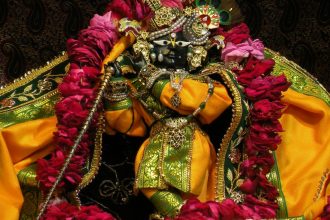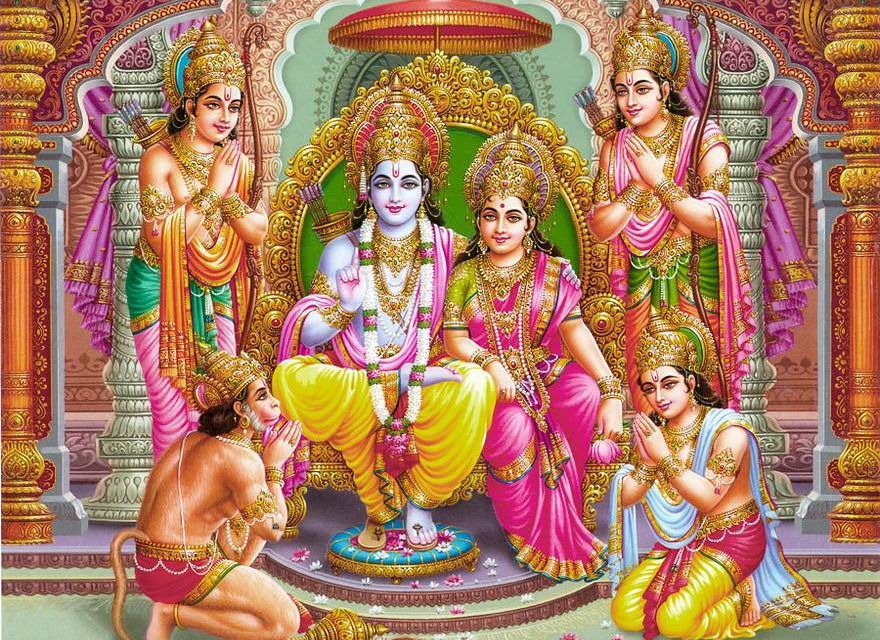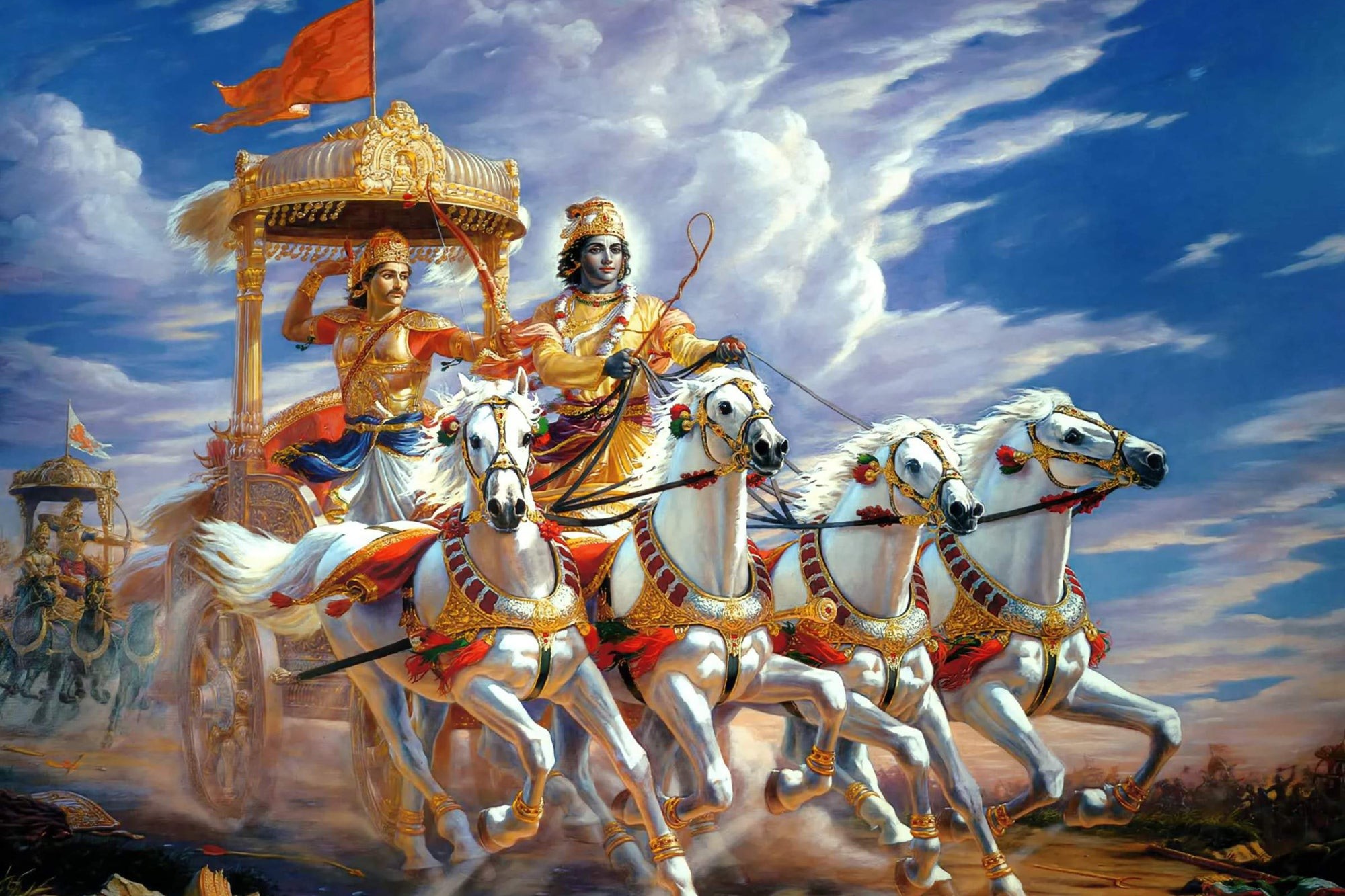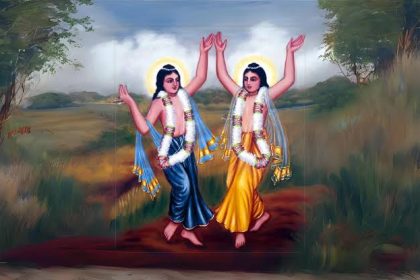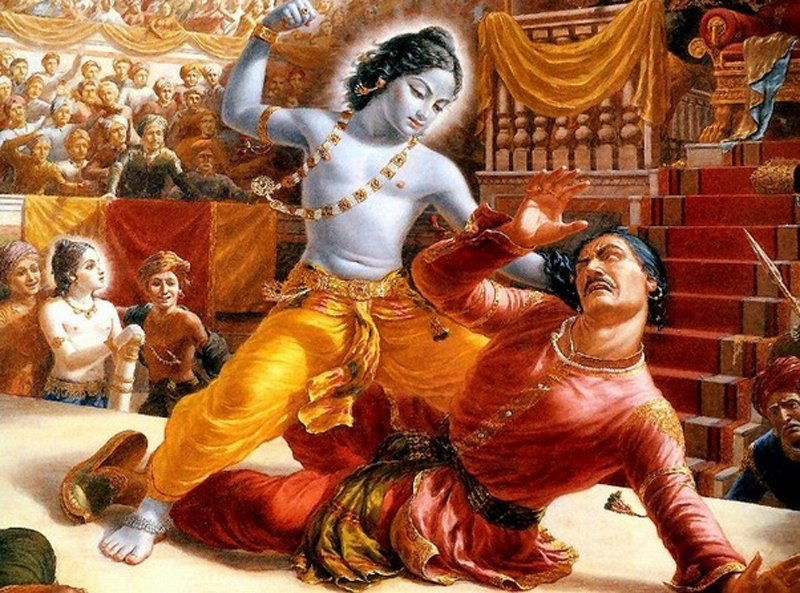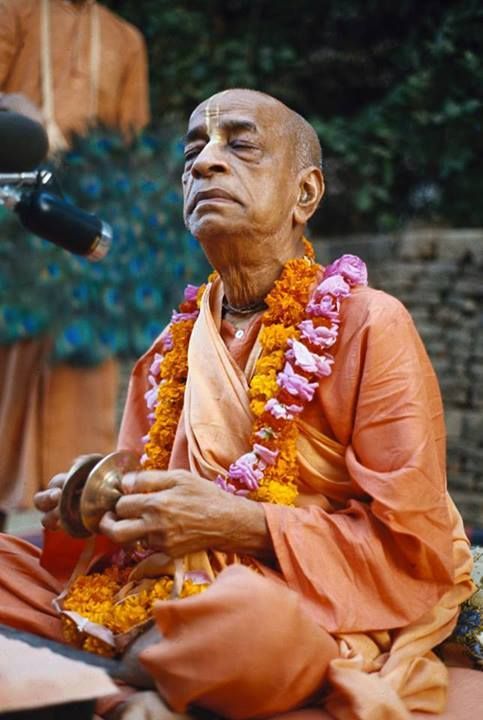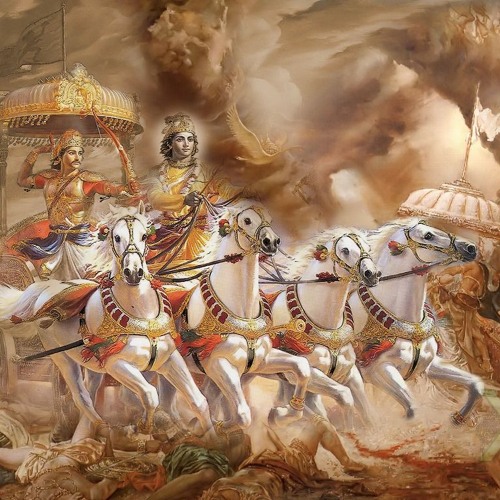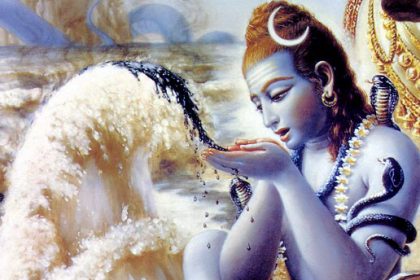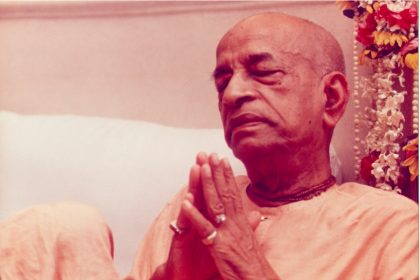by Satsvarupa Das Brahmachary
(Stephen Guarino)
According to the Bhagavad Gita, those “virtuous ones” who actually come to God, are of four kinds:
O best among the Bhāratas, four kinds of pious men begin to render devotional service unto Me—the distressed, the desirer of wealth, the inquisitive, and he who is searching for knowledge of the Absolute
Bhagavad-Gita 7.16
The distressed, who ask sanctuary at the Feet of the Lord, are quickly given ease and shelter. This is a fact: the life of devotional service leads one out of the entanglements of the perishable world. Refuge is granted through worship. For those in distress (anyone without Krishna Consciousness is in some measure of distress) God’s mercy grants peace, the easing of their burden. Whatever the frustration, whatever the pain, whatever the loneliness, loss or tragedy, it is balmed with the sincere and faithful hearing of the Vedic message (scripture). People in distress, however, are liable to come and go. With the rise of new “opportunities,” or after a period of rejuvenation in association with the Lord and His devotees, the distressed may leave the Supreme’s service in order to make a fresh attack on the mazes of illusion, thus falling back into the clutches of the temporary, material world.
The second “virtuous one” is the man who is seeking knowledge. He is curious to know God. God is All-Famous, and so the curious man becomes interested, and wants to know Him. Curiosity is a good reason—as any reason is—to turn to God, but if such a man applies only his curiosity to the Godhead, his intellectual enquiry will soon show itself to be endless, since the Divine Person cannot be measured by our human potencies. The Ruler of all universes and planets, the Source and Proprietor of Life and Wisdom will be enquired after by the speculative, knowledge-seeking man in birth after birth, until at long length the seeker concludes that “Vasudeva (Krishna) is All.” (Gita, 7.19). Only then does the imperishable wisdom begin.
After many births and deaths, he who is actually in knowledge surrenders unto Me, knowing Me to be the cause of all causes and all that is. Such a great soul is very rare.
Bhagavad-Gita 7.19
In a similar way, the seeker for wealth (whose virtue is in turning to God to satisfy his desires), will probably never actually be satisfied, not even by a deluge of gold. Neither will he ever advance closer toward God, until he goes beyond wanting God to be his order-supplier. In the Gita Lord Krishna says,
Men of small intelligence worship the demigods, and their fruits are limited and temporary. Those who worship the demigods go to the planets of the demigods, but My devotees ultimately reach My supreme planet
Bhagavad-Gita 7.23
That leaves us the man of wisdom.
Of these, the one who is in full knowledge and who is always engaged in pure devotional service is the best. For I am very dear to him, and he is dear to Me.
Bhagavad-Gita, 7.17
Why is the man of wisdom dear to God? Because he wants nothing in return. The man of wisdom puts aside his desires for those things for which others are searching, and seeks Krishna’s pleasure. He realizes that his true, original life is beyond the color of this temporary world of sense-pleasure, sadness, wealth-hankering and puffed-up knowledge-seeking. The wise man knows that he is transcendental, like Krishna. Krishna is above, and unaffected by, the pangs of bondage; and we are Krishna’s parts and parcels. While of course Krishna has the power to bestow gold and to dry up our tears of misery, asking for these things is like praying in hell-fire for a sumptuous meal and a woman, rather than asking for release from the flames. Krishna is transcendental, and when we pray to Him it is for mere association with Him. Never mind the list of special requests for our particular situation on Earth. Just pray to see Krishna. Krishna is the fullest Enjoyer and the wise man has the single desire to become His devotee. We have a chant in praise of Krishna: “Hare Krishna, Hare Rama.” This chant bestows the very wisdom we are speaking of. Therefore, the wise man’s position is to withdraw from all material attachment, both good and evil, and to chant the Holy Name of God. This is the wise man’s single need and prime duty.
How does the wise man subsist? He subsists on the nectar of transcendental service to the Lord. He feeds and cares for his body as you would care for the upkeep of a functionary push-cart. He eats for Krishna, after first offering his food to Him. He works at Krishna’s business and talks on Krishna’s behalf. Krishna says in the Gita, “Whose devotion is single-minded is best.” Single-minded devotion is best because Krishna says so, and he is the Single Supreme Person. Devotion to that to which we are inseparably connected is, after all, wise. Since we are all parts of the Godhead, our constitutional function is to serve as His parts, just as the hands serve the body, of which they are part. The hands never try to consume food themselves, absorbing it through the fingernails. Nor do they make a request of the body that they be given their “independence.” Yet, the hand performs well in its own miraculous sphere, making music, typewriting, grasping weights. Why, therefore, are we clamoring to God for special benediction? We already have the blessings of function: to serve the Eternal eternally. The wise man is aware of his natural, original position and is using both body and soul in the service of his Lord. If we frantically try to consume God’s gifts for our own enjoyment, we will very quickly reach the fruitless end of this mortal road, and will have to begin again: and, if we are not wise, the next time we will again meet the end of the road.
To do transcendental service is to surrender our will unto His will. But no, we have to learn it again and again, stubbornly—we have to learn that we actually have no business apart from God. We are wise when we reach the conclusion that God is the Bestower and is truly All. “Vasudeva is all that is.” (Gita, 7.19)
Having obtained real knowledge from a self-realized soul, you will never fall again into such illusion, for by this knowledge you will see that all living beings are but part of the Supreme, or, in other words, that they are Mine.
Bhagavad-Gita, 4.35
Our independence from Him is our illusion. Similarly fantastic is the pursuit of our own gratification, the desire for love apart from Him, or wealth apart from Him, or happiness apart from Him. The wise man leaves the mirage in favor of the Reality. Absolute Reality is to willingly serve the Lord. We are already His servitors; we cannot avoid the work. All miseries stem from forgetting this factual situation: There is the Lord, and there are ourselves—and we are His own. He is dear to us because we are dear to Him. Love is the key. And the wise man loves God.


